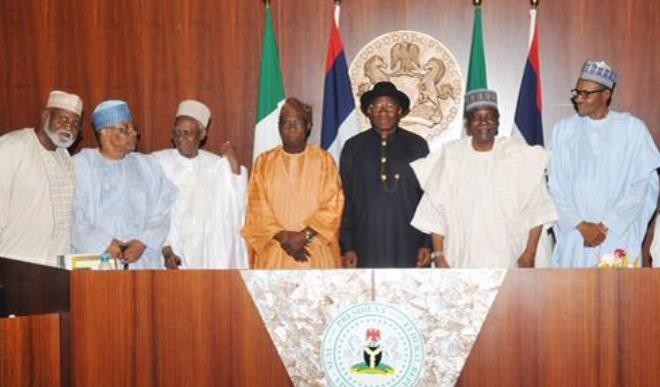
The debate is still on about whether government should do anything apart from regulate business. Thus far in this country, those who believe in government standing back and leaving everything productive to the private sector have won the day. We hear often how ‘government has no business with business’. But in an economy like Nigeria where too many gaps exist, and where we haven’t even started the journey to development, it is important for us to emphasise that no matter how those of us (Nigerians) who have been in government have messed things up, we must continue to emphasise that government must be responsible. Yes, most Nigerians see public property as no one’s property, and proceed to plunder same without conscience; but there are many basic needs that cannot be produced by the private sector, simply because they are not profitable. The private sector is only in the business of profit maximization. And it is only the government that is responsible for social stability – through ensuring optimal employment, productivity and the provision of public goods.
Hear the famous Professor Michael Porter of Harvard University on that matter:
In the continuing debate over the competitiveness of nations, no topic engenders more argument or creates less understanding than the role of the government. Many see government as an essential helper or supporter of industry, employing a host of policies to contribute directly to the competitive performance of strategic or target industries. Others accept the “free market” view that the operation of the economy should be left to the workings of the invisible hand.
Both views are incorrect. Either, followed to its logical outcome, would lead to the permanent erosion of a country’s competitive capabilities. On one hand, advocates of government help for industry frequently propose policies that would actually hurt companies in the long run and only create the demand for more helping. On the other hand, advocates of a diminished government presence ignore the legitimate role that government plays in shaping the context and institutional structure surrounding companies and in creating an environment that stimulates companies to gain competitive advantage.
For reference, see; https://hbr.org/1990/03/the-competitive-advantage-of-nations
The above was written for the Government and people of the United States of America, when Potter tried to let them know that they must not let go of the government responsibility and assistance which propelled them to greatness in the first place. I believe it is a great quote o adopt, and for those who can, the entire text must be read and digested several times.
This reckless practice of crony capitalism in the name of ‘privatisation’ and ‘private sector initiatives’ is what was responsible for many smart guys obtaining land from the government in Abuja – ostensibly for mass housing – only for them to start selling piecemeal to end users. Some made 1000% in profits from just grabbing the land! We have turned Capitalism on its head in Nigeria. And that is not in our enlightened self-interest.
Charity Commission
I close this by mentioning the idea of a Charity Commission. Again I have mentioned this elsewhere and written to even the Buhari Government on it (no acknowledgement) . I also put the idea in my latest book “Change is Going to Come”. I was discussing with a friend recently and we noted that our religious institutions had become serious cash centres and have plugged into the finances of most Nigerians. Many of them are sitting on Trillions of Naira “in the name of the Lord”. Good luck to them. But the way it is done in the UK, where the Minister of Finance was probably born, grew up, studied and lived in, is that a Charity Commission supervenes over all religious activities and ensures to an extent that the citizens of a country are not being cheated.
The Commission also ensures that – since these religious institutions are registered at the Company House (Corporate Affairs Commission equivalent) as ‘Charities’, they actually use donations (here all monies contributed, including tithes, yes), for charity reasons after paying the pastor and other workers very generous salaries. Obviously, our powerful religious elites (especially the ‘pentecostals’ and prosperity preachers) will hate this – for the abhor financial transparency – and it will not see the light of day. They prefer instead to keep the people the way they are, totally dependent on their ‘supernatural’ dictates and unable to think for themselves. That is why each year, and each month, the entire nation is drenched in prayers, and pastors especially make unreasonable promises to our people, which never come true, even as the ‘church’ gets exceedingly richer. One pastor complained to the Punch newspapers recently that he was not allowed to withdraw Dollar cash from his Domiciliary account into which any foreign currency meant for the church is being paid globally. Should church dollars be deposited in his account?
Lest it be seen as some anti-Christian thing, the Charity Commission is the body that will ensure that crazy fanatics who run Islamic sects don’t become the next Boko Haram too, because they constantly check on these gatherings and sects, obtaining names of their sponsors and trustees and keeping everyone in check. Again, the elite will not agree. This is hardly monetary, but the power in religion will not allow us move forward. Nigeria is a ridiculous space. If God looked down from heaven to see what religious leaders put people through – extortion, deception, victimization, hypnotization, intimidation – he will be sorry he created Nigerians. Yet the elite have not seen cause to arrest this ugly drift of our country!
So, are Nigerian elite any of the above? What’s wrong with them (us)?

 Join Daily Trust WhatsApp Community For Quick Access To News and Happenings Around You.
Join Daily Trust WhatsApp Community For Quick Access To News and Happenings Around You.


